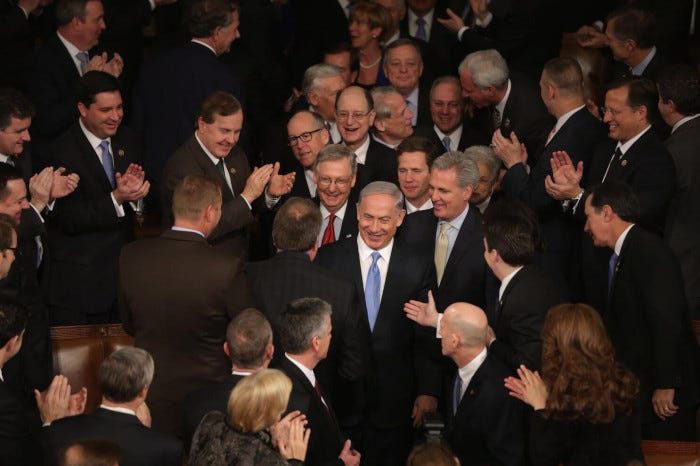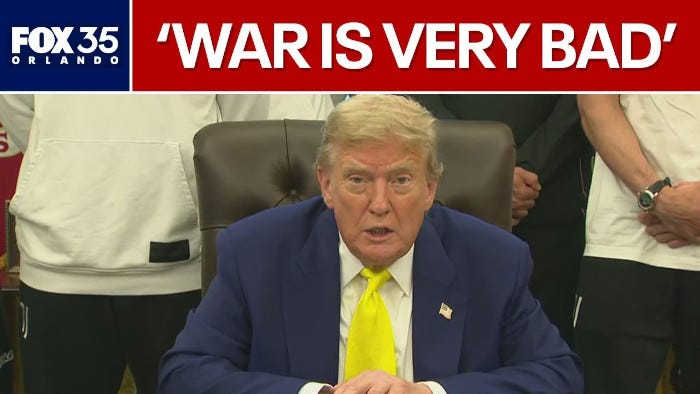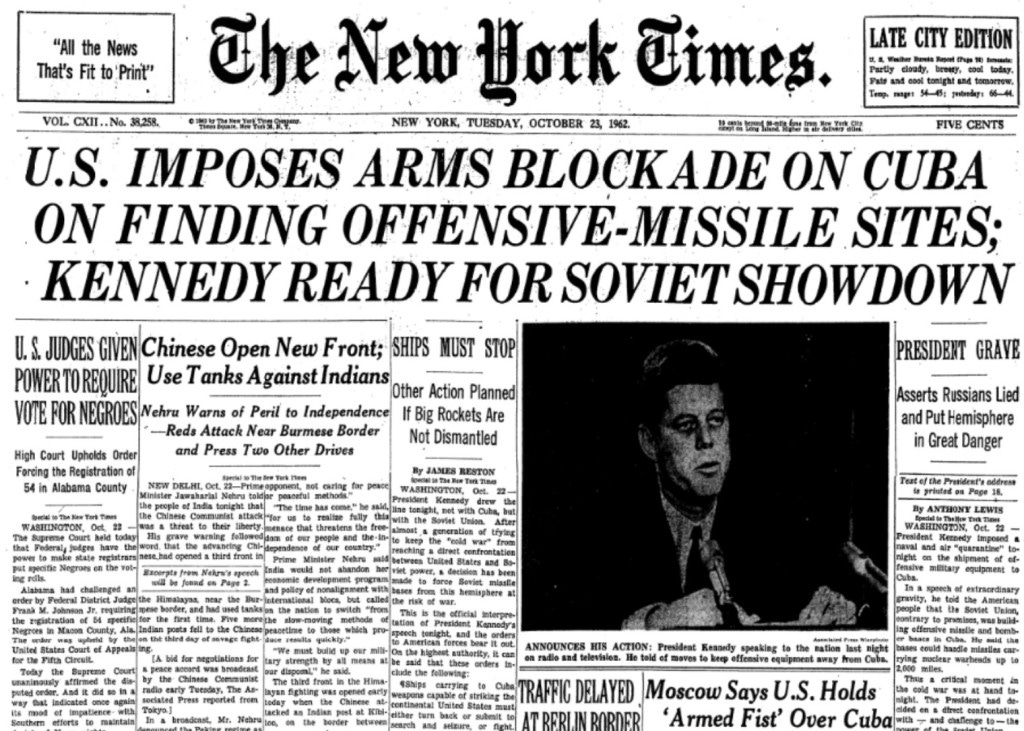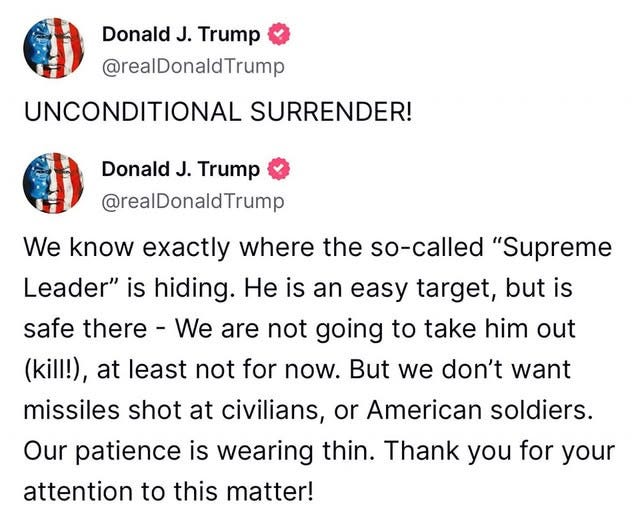Israel-Iran War Rises Out of Historical Noise and Into Trump’s Lap, a Possible Litmus Test For America-First or Israel-First
Janus:
– 20 June 2025 –
Janus:
Six days ago, I dismissed the current Israel-Iran scuffle as mere historical noise, in all likelihood. It was loud noise to be sure, but at the time, I expected this to blow over with both sides largely intact. Most of the time, these things do just blow over. Neither party seemed bent on starting a serious war, as they showed bluster along with restraint of their full forces. (In retrospect, the various assassinations in Iran should have given a clue about Netanyahu’s intentions.)
In any case, since that article last Saturday, the situation looks increasingly dire. The Israelis are faring worse at home than it seemed they would, and Iran is not simply backing down (at least not yet.) Nuclear-armed Pakistan is growing testy with the Zionists in this situation, who keep attacking country after country; and of course the US, rather than merely rush supplies to Israel as we always do, is gearing up for a major operation of our own.
Overall, this looks increasingly serious, and the situation has certainly risen above the level of historical noise, even if the conflict settles down from here. Parts of Tel Aviv look like wrecked Gaza right now, which has never happened before at such a scale.
Now the question is, where does this go from here? Will this turn out to be a minor event in regional history books, or a major one in world history? Will historians regard this as another world-on-the-brink moment, something like the Cuban Missile Crisis, or will this turn into a larger war?
Not that this is merely about history: it’s potentially about death for millions of people, and what future life looks like for billions.
The key to the whole mess is Donald Trump. What is he going to do?
Lessons From the Cuban Missile Crisis
In 1962, President Kennedy was faced with a dilemma as the Soviets began setting up nuclear missiles in Cuba. If Kennedy launched an all-out attack, then the world faced the potential for nuclear war. If he did nothing, then the United States would lose face and embolden the Soviets, plus contend with a nuclear-armed enemy on America’s borders. So Kennedy cleverly settled for a naval blockade and then privately informed the USSR that the United States would take its nukes out of Turkey in exchange for the Soviet’s removal of their missiles from Cuba. It worked out very well.
Trump, I suppose, has an opportunity to emulate Kennedy in this situation. Or maybe that’s what he was trying to do with his recent negotiations with the Iranians about their nuclear program. Till it was apparent, anyway, that Netanyahu was going to attack.
And therein lies the trouble when we compare this situation to the Cuban Missile Crisis: Kennedy didn’t have to depend on the goodwill of Zionist Jews. Put more neutrally, Kennedy wasn’t intervening in somebody else’s war, but that is what Trump is facing.
To be sure, a truly independent Donald Trump could simply cut off Israeli supplies and threaten Iran with total blockade along with the threat of direct American intervention. He could theoretically force both sides to the negotiating table.
But these war supplies keep rolling into Israel as we speak. If Trump is planning such a thing, there is no sign of that yet.
To What Extent are Jews Running the Show?
The trouble is, even if Trump himself isn’t beholden to these Jews, most of the US leadership is beholden. According to Congressman Thomas Massie (and there is no reason to doubt him here), every member of Congress has a dedicated AIPAC lobbyist. Jews run the media, the financial institutions, academia, etc. It’s just a fact. But do the American Jews and the Israeli Jews agree about this war?
And even if these powerful Jews didn’t all-but dictate American policy in the Middle East, and even if they don’t necessarily support war in the Middle East, Israel under Benjamin Netanyahu amounts to a loose cannon, and “Bibi” could certainly whip up a false flag against our precious US military, or domestically. This is historically how we justify our wars.
Moreover, the Mossad has agents everywhere. If push comes to shove, Trump could take a bullet, and a chastened weakling like J. D. Vance could obediently blame it on Iran.
How likely are these things? The false flag, very possible. Assassination? That’s pretty dramatic, and unlikely, but other, less visible, leverage isn’t so far-fetched.
One way or another, Trump is really in a bind here, even if he isn’t merely a creature of the Jews who allowed him to get elected, and who more or less run the government and society.

With Trump, Talk is Ridiculously Cheap
“Two weeks,” Trump now says. He will decide whether to attack Iran or not within two weeks.
If there is anything we know about Donald Trump, it’s that we can’t take his threats or predictions seriously.
Trump is the king of bluster, but he’s been president long enough that we can already see certain patterns. One of these, nowadays, is called TACO: “Trump Always Chickens Out.” The term, it seems, was originally coined a few months ago in response to his repeatedly backing down on his aggressive tariffs. But other commentors have noted this tendency even during his first term. In fact, whenever Trump has stepped out of line against the interests of the System, he’s ended up backpedaling or caving entirely. Think the first-term border wall, mass deportations, the government shutdown, the George Floyd riots, January 6, to name some of these failures in his first term. In his second term so far, Trump looks a little better, but it’s only been five months, and the results are already pretty mixed.
But overall, when it comes to bluster, most of the time when Trump runs his mouth, he gets a rise and a shriek out of the typical swooners, and then nothing ever comes of it again.
“Two weeks” could actually mean something, or it could mean nothing at all. The same with the “UNCONDITIONAL SURRENDER” that he’s demanded of Ayatola Ali Khamenei. Sheesh.
Do we get the Trump who resisted Israel’s attempts for an American invasion of Syria? Or do we get the Trump who authorized the reckless assassination of Iranian general Qasem Soleimani? It’s hard to say.
Business Thinking
Maybe we should think of this like a business venture. Trump is a businessman, and he didn’t get rich by blowing tons of money on ballooning costs and running commitments. With investments, you set aside how much you’re willing to lose, and figure out the likely costs versus the likely gains.
We tried to destroy Yemen, but after a month of ineffective airstrikes, when jets started “falling off ships” and the costs really started to drain, we declared victory and pulled right out, despite Yemen largely remaining unchecked.
The assassination of Soleimani was very cheap, and a Syrian war might have ended up costing a trillion dollars.
If there is logic to this idea about economic costs, then whatever we try to do to Iran is likely going to be very limited for the sake of thrift, if nothing else.
But war doesn’t always work like business. I don’t think Trump really sees that.
Conclusion
So that is the question: what will Trump decide? The decision is kind of a shit-test. Whose side is he on: is it America-First or Israel-First? How long can he keep balancing both?
In the end, Trump’s decisions over the next “two weeks” will determine whether the Israel-Iran conflict rises to the level of a full-fledged war, or if Israel and Iran suffer some scrapes but otherwise move on. And maybe this will settle for once and all the question of whose side Trump is really working for.








Reasons for Israel to push for regime change now: Syria, Lebanon, Iraq, etc. are down. Russia is occupied with Ukraine. China is still reluctant to provide overt assistance to allies; perhaps their covert support is significant. Israel and Zionism are extremely unpopular with all those < 40 years old, and this will only get worse. Christians, even those in America, are becoming very opposed to Zionism. It is increasingly difficult to dominate the narrative. There was significant opposition to the Covid narrative, and it is going to be harder to dominate the narrative over time. This is a generational opportunity for Israel, and they probably can't wait another 25 years to go for a regime change owing to their own internal difficulties (at least, that is what I've heard). Forcing Trump to act against Iran will end up depleting all of his political capital for domestic policies and provide justification to the Left to further riot. Recognizing that America is exhausted, Israel would want America to significantly degrade Iran now because the US will be in much worse shape in 25 years. American involvement could lead to America ultimately exiting the Middle East. Would that be part of the desired outcome? Beat Iran and the US at once, leaving Israel as hegemon in the Middle East? There's a strong sense of inevitability both that Israel will wage war on Iran and that America, like all empires, one day has to go home. Now or never.
I sense that the 2 week pause is in part due to the White House feeling the need to take the temperature of American society before acting. I assume that only an air campaign can be waged, and since American casualties should be low, that may make the war more palatable. Perhaps the American military losses would be worse than imagined: supposedly, Iran has Chinese anti-ship weapons and SU-35/37s stored underground. Still, it would be a nearly impossible sell; well, they probably wouldn't sell it at all. The Covid narrative was difficult for the layman to follow and understand because a lot of the reporting involved statistics. With a war, initiated by Israel, the situation and moral dimension is simpler to comprehend. (And people that weren't following the events in Gaza will get caught up with all of those atrocities). Covid led many to learn about past conspiracies. Doing so can deeply change how you see the world. You begin to apply a different set of cognitive heuristics. A lot of people are on the lookout for false flags. It is very significant that people even know that term.
Despite the aforementioned points arguing for the inevitability of large-scale conflict, I'm feeling more hopeful that things will settle down.